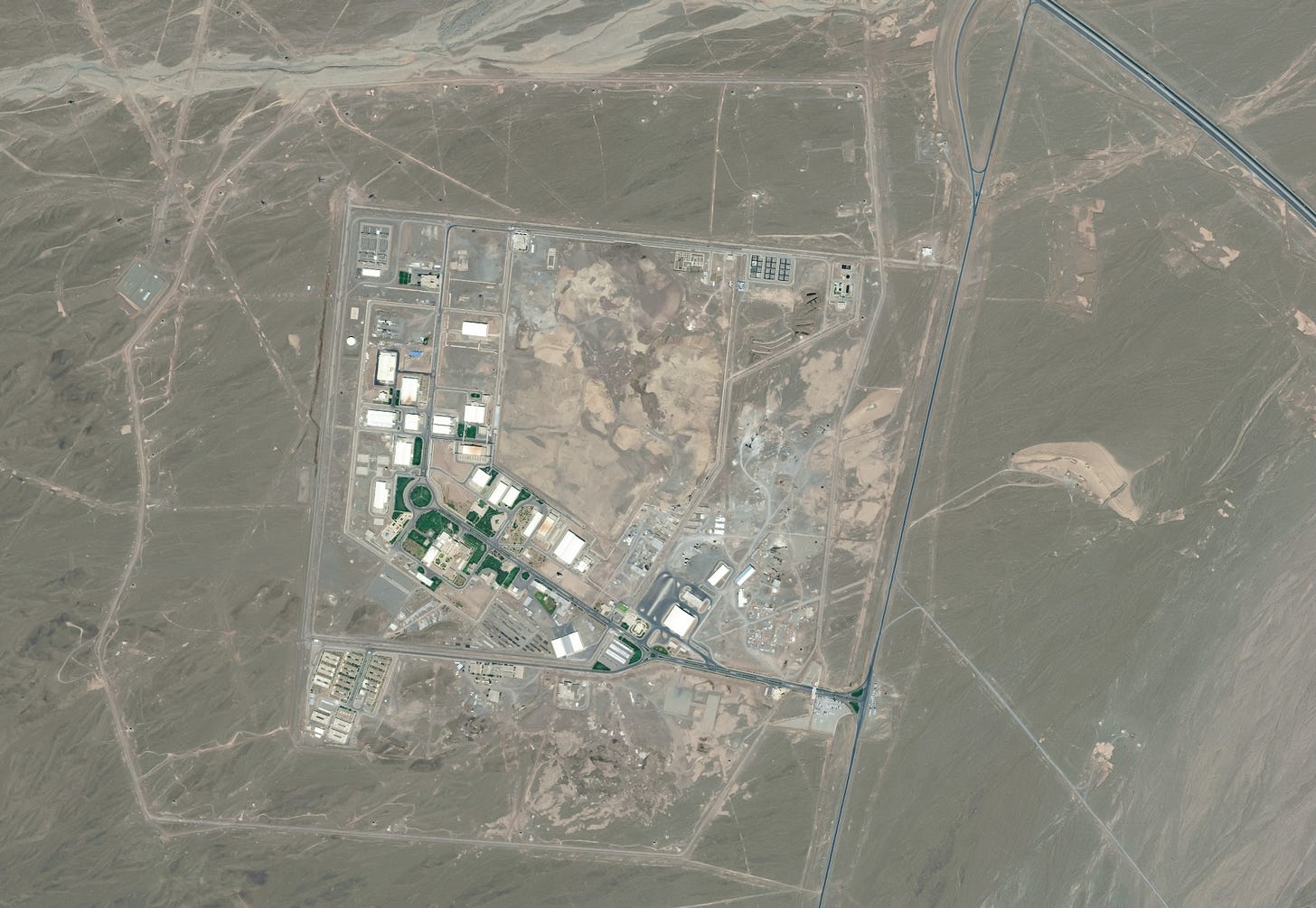Reprinted from Seymour Hersh on Substack
Why Israel did not attack Iran’s suspected nuclear weapons facility
The tit-for-tat attacks between Israel and Iran that consumed much of the world’s attention over the past two weeks reached a crescendo on April 13, when an Iranian drone and missile assault on Israel failed after an armada of allied fighter planes—secretly organized by the Pentagon, with the support of Russia—shot down more than three hundred armed Iranian drones and missiles headed for targets in Israel.
The Middle East and the Western world anxiously waited for the Israeli response. It came a few days later when two Israeli fighter planes, operating outside Iran’s border, fired supersonic missiles at a high-tech Iranian defensive missile site that was protecting Iran’s most important nuclear enrichment site, near Natanz, eighty miles north of Isfahan.
The New York Times, in a dispatch from Washington, depicted the attack as limited but a ‘potentially big signal” to the Iranian leadership, The message was that Israel was willing and capable of attacking the heart of the Iran’s most important weapons complex: “The taboo against direct strikes on each other’s territory was now gone.” Similar worried assessments were published around the world. A later Times report told of a conversation between President Joe Biden and Israeli Prime Minister Benjamin Netanyahu, in which the unpredictable Israeli leader was said to have been talked out of further, and far more aggressive, attacks. The world had perhaps moved away from the brink.
The Israeli decision to strike the Iranian missile defense site, and not the enrichment facility at Natanz itself, was seen in a far different light by political and weapons experts in the American intelligence community. Targeting the missiles was viewed as what a poker player would call a “tell”—a hint of a far deeper meaning.
For decades, the Israeli leadership—especially Netanyahu—has repeatedly warned the world of Iran’s burgeoning nuclear capability and dismissed the fact that the Iranian program has been under supervision, and constant camera watch, of the International Atomic Energy Agency safeguards. Two highly secret American National Intelligence Estimates, in 2007 and 2011, made public by this reporter in the New Yorker, also concluded that Iran had made no effort to fabricate its suspected highly enriched nuclear materials into a warhead. America’s nuclear weapons experts, despite years of efforts, have failed to find any evidence of an underground Iranian facility capable of turning highly enriched uranium into a weapon.
Now, given free rein and a rare measure of international support, to respond to the Iranian missile barrage, Israel chose not to attack the enrichment facility itself.
“This was it,” an American intelligence official told me. In a series of backchannel talks, the Israelis were advised that they had three options for retaliation. The first was “a massive crippling strike that would escalate the war and further degrade Israel’s world standing.” The second was “a limited strike on the greatest threat to you and the world by taking out Natanz—if you in fact believe that Iran has the bomb or are about to. You can justify the strike as restrained and justified.” And the third: “If you know that Iran does not yet have or is not about to have the bomb, show your hidden hand—preemption ability—standoff hypersonic targeting at will, but pass on [targeting] the enrichment facility at Natanz.
“Here’s your chance,” the Israelis were told, “to tell the world,currently paralyzed by fear of the Iranian nuclear threat, not to worry. Iran does not pose a threat and you know it. This opens a new opportunity for risk-free negotiating strength for the West and the Middle East. You will begin to show balanced judgment and to put Gaza behind and shed the rogue elephant rep.”
Some states in the Middle East got the message, the American official said. It was his impression that the officials running foreign policy in the Biden Administration “had no clue” about what had gone on.
In essence, he said, “Israel called the bluff,” as in a poker game, “on itself. We say to ourselves that we are glad that the Israelis were moderate” in their attack on Iran, “but nobody here has asked the right question. Did Israel really want to show to the world that it could hit an Iranian air defense site with a hypersonic super weapon?
“The Israeli decision not to take out Natanz could lead to a whole new Middle East and Iran will now be free to join the world,” the official said. “Israel showed that the Iranian bomb was a false alarm. Something potentially great has happened.”

No comments:
Post a Comment